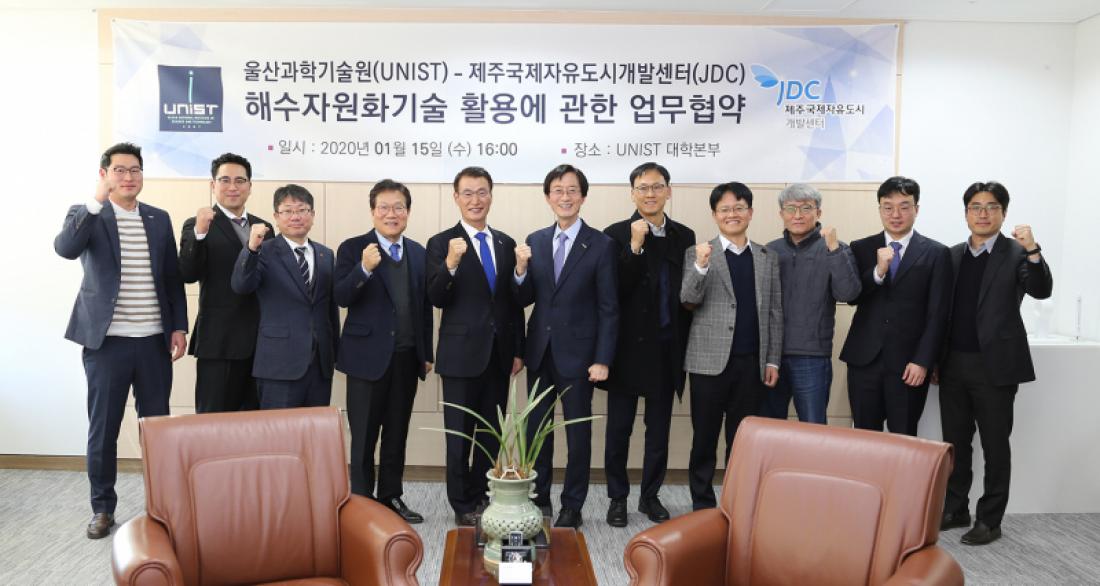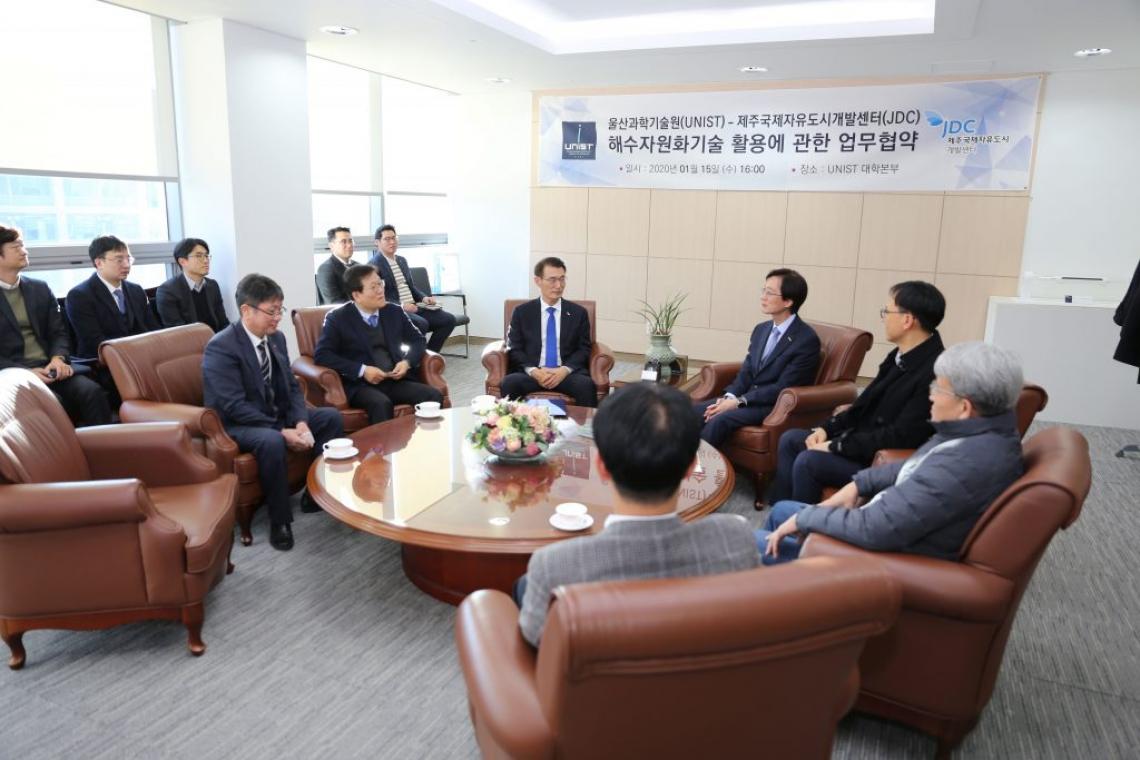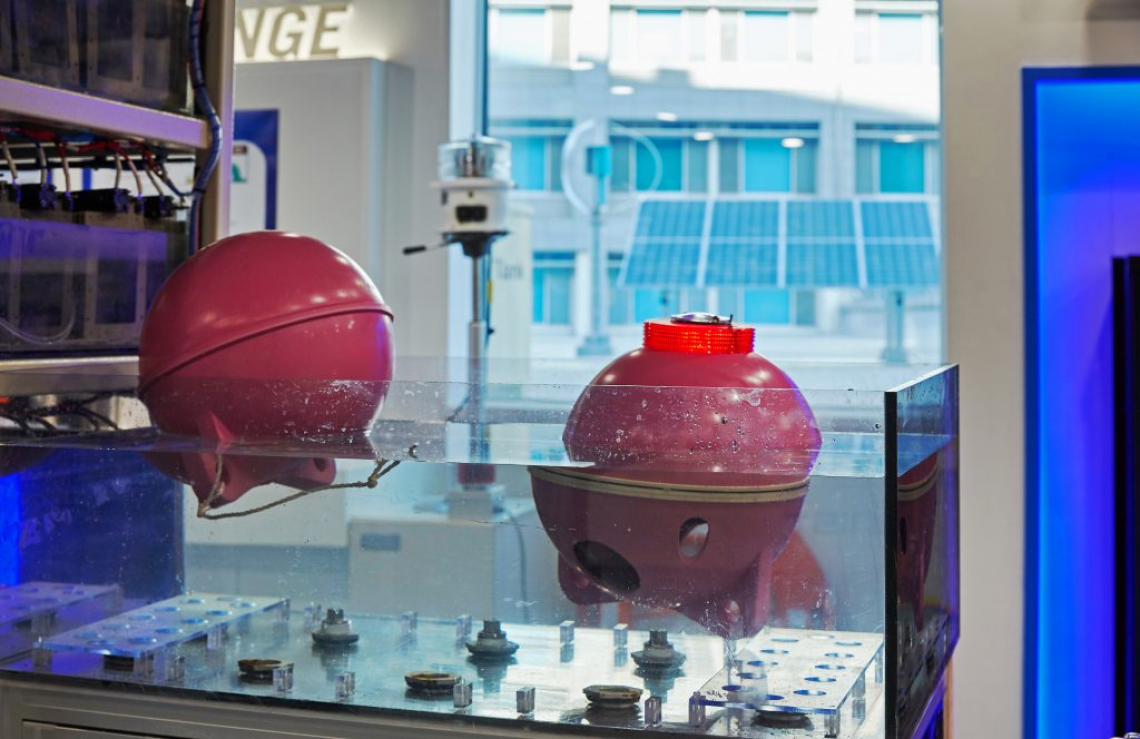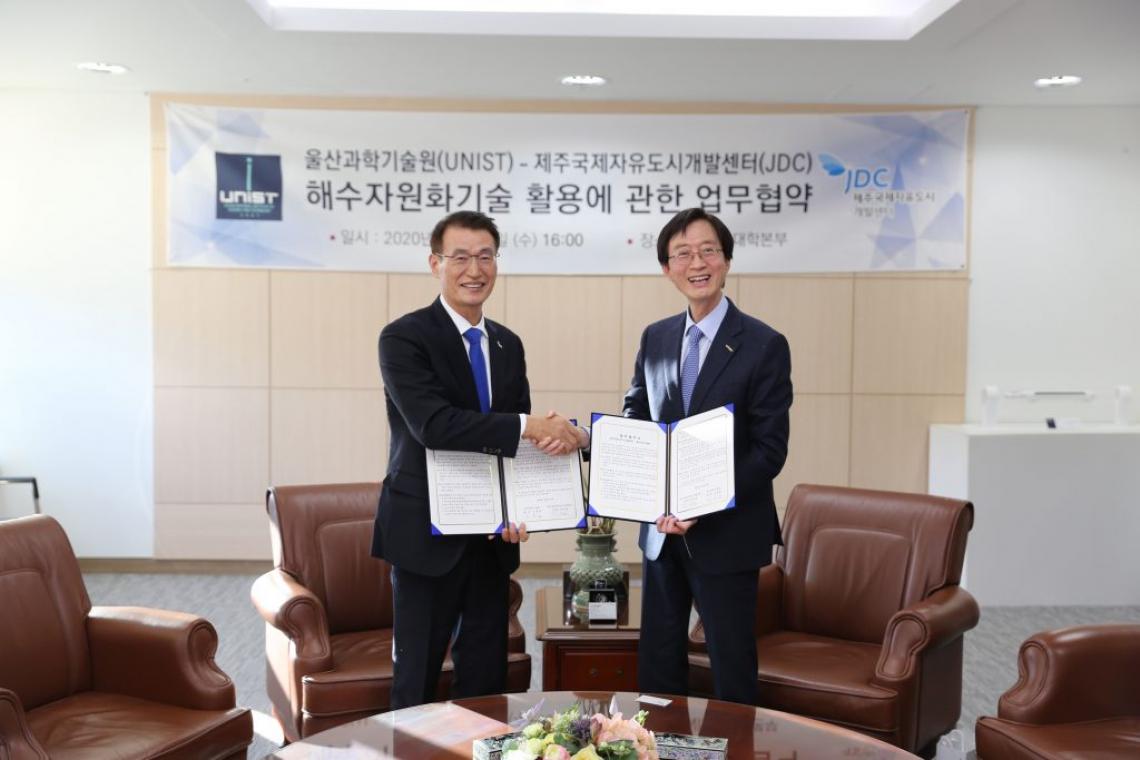The signing ceremony of MoU between UNIST and Jeju Free International City Development Center took place at UNIST on January 15, 2020.
On January 15, UNIST signed a Memorandum of Understanding (MoU) with the Jeju Free International City Development Center (JDC) to forge ahead toward achieving scientific excellence.
In the memorandum of understanding, the two organizations also promised to form a strategic partnerships for the purpose of realizing the practical applications of the source technologies for the world-first seawater batteries, developed by UNIST.
The signing ceremony for cooperation MOU between UNIST and JDC took place in the 6F main conference room, located in the Main Administration Building at UNIST.
Under this partnership, both organizations have pledged mutual cooperation for the development of marine-friendly energy and resource technologies, aimed at promoting the value of Jeju Island’s clean ocean. The two sides also agreed to expand technological cooperation in developing, distributing, and commercializing seawater resource technologies.
UNIST and JDC will be promoting the demonstration and dissemination projects for seawater battery-based small marine equipment that can be commercialized in a relatively short period of time. Life-saving vests and fishing gear-type GPS buoys, capable of sending out rescue signals or guiding mariners at sea after contact with seawater, are top priority applications.
“Jeju Island has an environment that can lead the application of seawater resources technologies, as it is surrounded by the sea on the four sides,” says Director Youngsik Kim of Seawater Resources Technology Research Center at UNIST. “With the advancement of seawater battery technology, we plan to establish a mid-to-long term commercialization project for the Jeju Island.”
Seawater battery-based buoy, located at the Seawater Resources Technology Exhibition at UNIST.
Seawater batteries use earth-abundant seawater (sodium) to generate electricity. Therefore, they are much cheaper and more environmentally friendly than lithium and will, therefore, offer a low-cost route to large-scale energy storage. This makes this system an attractive supplement to existing battery technologies, thus leading the energy storage system (ESS) market.
Since the successful development of world’s first seawater batteries in 2014, Professor Youngsik Kim (School of Energy and Chemical Engineering) at UNIST has been continuously carrying out relevant research to offer a low-cost energy storage system (ESS). Professor Kim and his research team have secured 5 billion KRW in funding from Korea Electric Power Corporation (KEPCO) and Korea East-West Power Company (EWP) and has been cooperating with the Korea Institute of Ocean Science & Technology (KIOST) to develop a range of application technologies for seawater batteries using UNIST’s seawater bettery technology. Besides, the recently-launched 10kWh energy storage system using seawater batteries has been put into test operation in December last year at Ulsan Thermal Power Plant.
Chairman Daelim Moon of JDC and President Yong Hoon Lee of UNIST are posing for a portrait at the signing ceremony for cooperation MOU.






